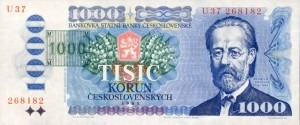 “Minors of the Majors” invites you to discover compositions by the great classical composers that for one reason or another have not reached the musical mainstream. Please enjoy, and keep listening!
“Minors of the Majors” invites you to discover compositions by the great classical composers that for one reason or another have not reached the musical mainstream. Please enjoy, and keep listening!
A patriotic and nationalistic fervor, which had inundated virtually all aspects of European society, eventually led to the revolutions and subsequent unification of Germany and Italy around the middle of the nineteenth century. These political stirrings of national identify and pride found their way into all forms of artistic expression. Composers adopted or imitated folk song or dance, or used tales from folk literature as the basis of dramatic or programmatic works. Musical nationalism also represented a reaction against the overbearing musical dominance of central European composers, including Beethoven, Brahms and Wagner. It is therefore not surprising that the ideals of nationalism found especially fertile grounds among composers working in the countries of Eastern Europe.
The Bohemian composer Bedřich Smetana (1824-1884) paid homage to his native country, by producing numerous programmatic compositions on nationalistic themes. Perhaps his most famous is Má Vlast (My homeland), a cycle of six tone poems written from 1874 to 1879. Although Smetana is primarily known for his nationalist works for orchestra and the musical stage, he was first and foremost a composer of the piano! Despite having had no extensive formal training as a pianist, his technique was compared to that of Liszt, and his Chopin interpretations elicited high praise. Even after becoming totally deaf as a result of syphilis, Smetana’s performances were said to be as inspired and haunting as always. His extensive catalogue of piano works—sadly virtually unknown and underrated—contain some of the finest, most colorful, and virtuosic pieces of the romantic repertoire. Smetana dedicated the cycle of six Dreams to wealthy students who had helped him financially during the difficult period. This extraordinary set blends pianistic lyricism in the style of Chopin and Schumann with pyrotechnic virtuosity in the Lisztian mood. And as always with Smetana, it abounds with characteristic Czech rhythms and folk melodies!
Bedřich Smetana: Dreams
You May Also Like
- Minors of the Majors
Giacomo Puccini: Pezzo per pianoforte Giacomo Puccini (1858-1924) famously wrote, “Holy God touched me with his little finger and said to me, write for the theater; take care, write only for the theater.” - Minors of the Majors
Richard Wagner: Piano Sonata in A Major, Op. 4 Richard Wagner was one of the most important and controversial figures in the history of nineteenth-century music. - Minors of the Majors
Niccolò Paganini: Concertino for Horn, Bassoon and Orchestra, MS 65 Niccolò Paganini (1782-1840) is customarily credited with representing the pinnacle of violin technique. - Minors of the Majors
George Gershwin: Lullaby for Strings George Gershwin was the son of seriously poor Jewish immigrants!
More Anecdotes
- Bach Babies in Music
Regina Susanna Bach (1742-1809) Learn about Bach's youngest surviving child - Bach Babies in Music
Johanna Carolina Bach (1737-81) Discover how family and crisis intersected in Bach's world - Bach Babies in Music
Johann Christian Bach (1735-1782) From Soho to the royal court: Johann Christian Bach's London success story - A Tour of Boston, 1924
Vernon Duke’s Homage to Boston Listen to pianist Scott Dunn bring this musical postcard to life
